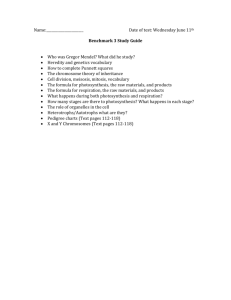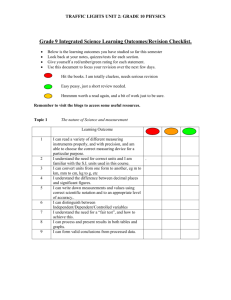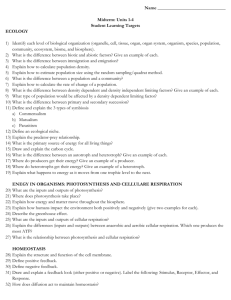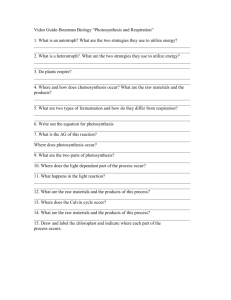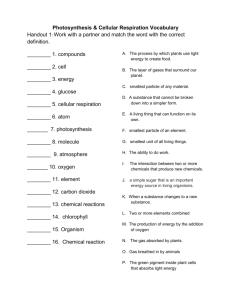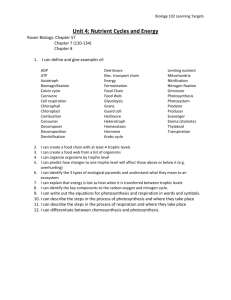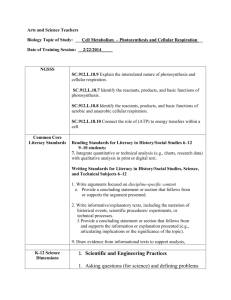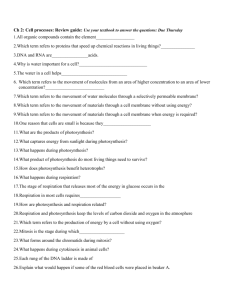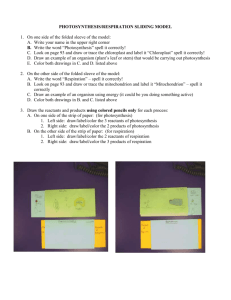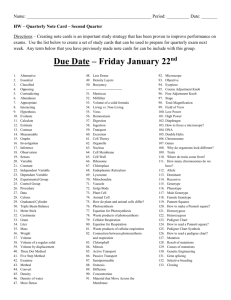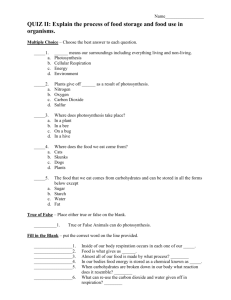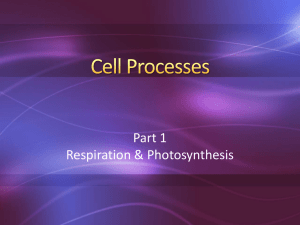Photosynthesis and Respiration Creative Writing Assignment
advertisement
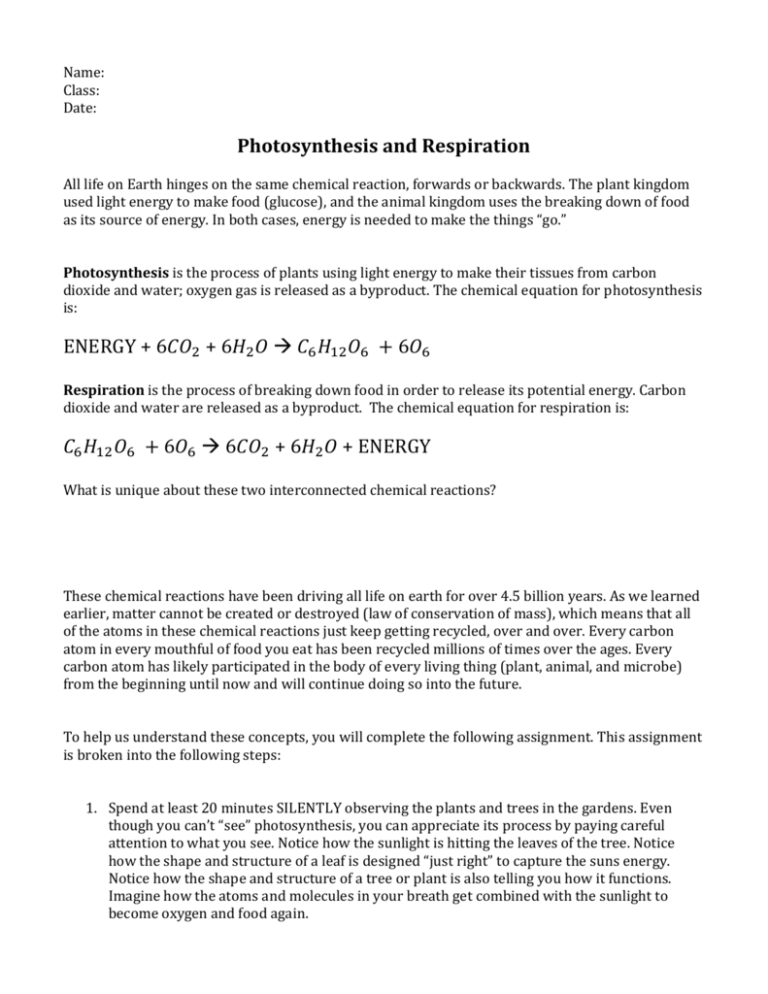
Name: Class: Date: Photosynthesis and Respiration All life on Earth hinges on the same chemical reaction, forwards or backwards. The plant kingdom used light energy to make food (glucose), and the animal kingdom uses the breaking down of food as its source of energy. In both cases, energy is needed to make the things “go.” Photosynthesis is the process of plants using light energy to make their tissues from carbon dioxide and water; oxygen gas is released as a byproduct. The chemical equation for photosynthesis is: ENERGY + 6𝐶𝑂2 + 6𝐻2 𝑂 𝐶6 𝐻12 𝑂6 + 6𝑂6 Respiration is the process of breaking down food in order to release its potential energy. Carbon dioxide and water are released as a byproduct. The chemical equation for respiration is: 𝐶6 𝐻12 𝑂6 + 6𝑂6 6𝐶𝑂2 + 6𝐻2 𝑂 + ENERGY What is unique about these two interconnected chemical reactions? These chemical reactions have been driving all life on earth for over 4.5 billion years. As we learned earlier, matter cannot be created or destroyed (law of conservation of mass), which means that all of the atoms in these chemical reactions just keep getting recycled, over and over. Every carbon atom in every mouthful of food you eat has been recycled millions of times over the ages. Every carbon atom has likely participated in the body of every living thing (plant, animal, and microbe) from the beginning until now and will continue doing so into the future. To help us understand these concepts, you will complete the following assignment. This assignment is broken into the following steps: 1. Spend at least 20 minutes SILENTLY observing the plants and trees in the gardens. Even though you can’t “see” photosynthesis, you can appreciate its process by paying careful attention to what you see. Notice how the sunlight is hitting the leaves of the tree. Notice how the shape and structure of a leaf is designed “just right” to capture the suns energy. Notice how the shape and structure of a tree or plant is also telling you how it functions. Imagine how the atoms and molecules in your breath get combined with the sunlight to become oxygen and food again. 2. Complete a brainstorm, sketch or diagram (or a combination) that shows evidence of a thoughtful 20-minute observation. Show brainstorm, sketch or diagram to Mr. Bilandzija before going on to step 3. 3. Write a story from the perspective of a carbon, hydrogen or oxygen atom that has been cycled through life on earth for the last 4.5 billion years. Your story should demonstrate an understanding of the chemical reactions of photosynthesis and respiration, as well as the concepts we’ve been studying in this unit of chemistry. Have fun and be creative. Think about all the different places, people and things these atoms have been. Illustrations are optional but encouraged. Rough draft due Friday October 18
